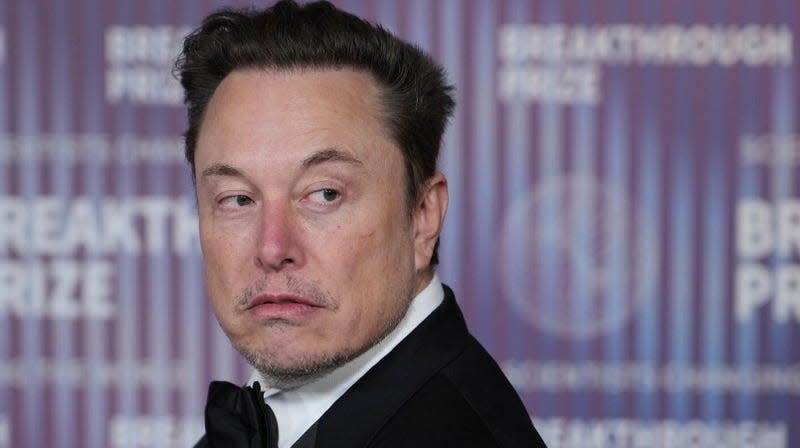Neuralink Co-Founder Suggests He Left Elon Musk's Company Over Safety Concerns

- Oops!Something went wrong.Please try again later.
Would you let Elon Musk tinker with your brain? That’s a question we all might be facing in the future if his brain-computer interface company Neuralink succeeds. But anyone who’s ready to raise their hands for brain surgery might want to hear what one of the Neuralink co-founders recently said during an interview with the Wall Street Journal.
The Wall Street Journal podcast The Future of Everything recently sat down with Dr. Benjamin Rapoport, a neurosurgeon who co-founded Neuralink with Musk and a team of scientists back in 2016. Rapoport left Neuralink to start his own company called Precision Neuroscience and one specific part of the interview really stood out to us. Specifically, the part where Rapoport seemed to suggest he left over safety concerns.
“You co-founded Neuralink alongside Elon Musk, and you ended up leaving to start Precision. Why did you decide to leave and start a new company?” the Wall Street Journal’s Danny Lewis asked in the May 3 episode.
“I’ve pretty much devoted my entire professional life to bringing neural interfaces from the world of science to the world of medicine. But I felt that in order to move to the world of medicine and technology, safety is paramount,” Dr. Rapaport said.
“For a medical device, safety often implies minimal invasiveness,” Rapaport continued. “And in the early days of brain-computer interfaces, there was this notion that in order to extract information-rich data from the brain, one needed to penetrate the brain with tiny little needle-like electrodes”
Dr. Rapaport continued to explain on the podcast that this method has one big drawback. It causes “some amount of brain damage when they’re inserted to the brain.” That, of course, is less than ideal. And Rapaport says he believed it was possible, “to extract information-rich data from the brain without damaging the brain.”
Dr. Rapaport goes on to say he formed Precision Neuroscience with that philosophy in mind. It was crucial to focus on “minimal invasiveness, scalability, and safety” when producing neural interfaces. And he believes that’s what sets his company apart from Neuralink.
“The Neuralink system is based on penetrating microelectrodes. The Precision system is based on surface microelectrodes, which are tiny little electrodes that coat the surface of the brain without penetrating it,” Rapaport explained.
Brain-computer interfaces have made tremendous strides in the past decade, allowing people to literally control machines with their thoughts. Companies like Musk’s Neuralink tend to get all the headlines, but there are a number of firms, including Synchron, Paradromics, and Precision Neuroscience. And they all have their own philosophies on what level of invasiveness is permissible.
Neuralink has received plenty of criticism over the years, with MIT Technology Review calling it “neuroscience theater” back in 2020, and horrifying allegations of monkey torture were revealed in 2022. Fifteen monkeys were reported to have died at a Neuralink facility between 2017 and 2020, according to a complaint filed with the U.S. Department of Agriculture. But Musk rejected the idea that monkeys in Neuralink labs died gruesome deaths, claiming instead that they lived in “monkey paradise.”
None of that criticism has stopped people from getting excited about the possibilities in brain-computer interfaces, even if it’s work tied to Neuralink. The company recently released a video of a Neuralink patient playing video games with his mind. And there are more than a few people on social media who are ready to have Musk outfit them with experimental brain-computer interface tech.
Gizmodo tried to reach Dr. Rapoport through Precision Neuroscience’s website on Sunday but did not hear back. We’ll update this post if we receive a reply. Neuralink also didn’t respond to an email on Monday.

